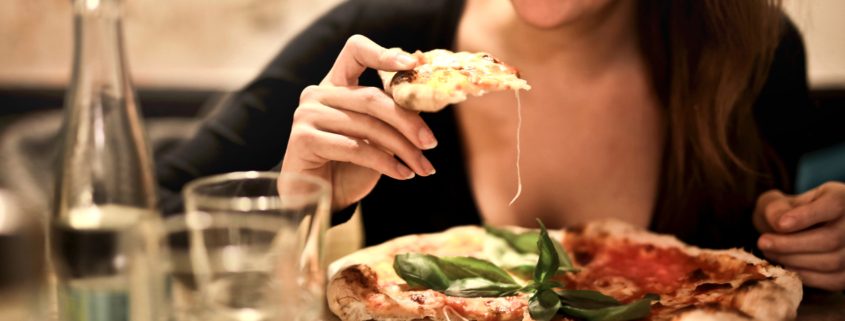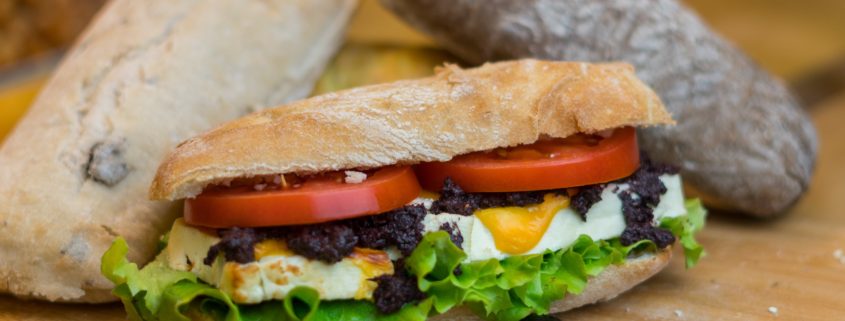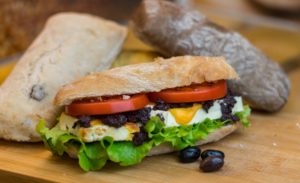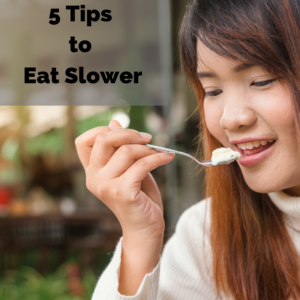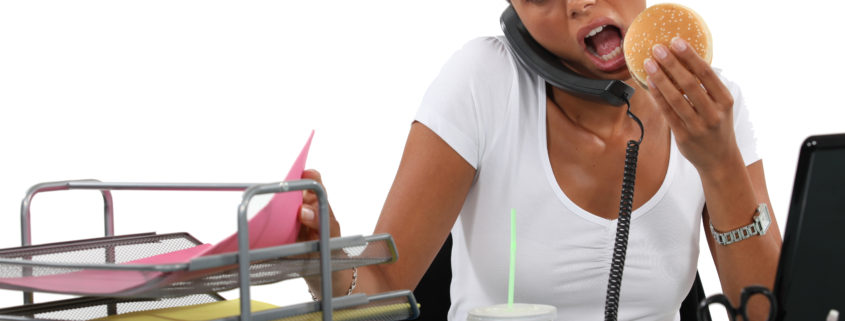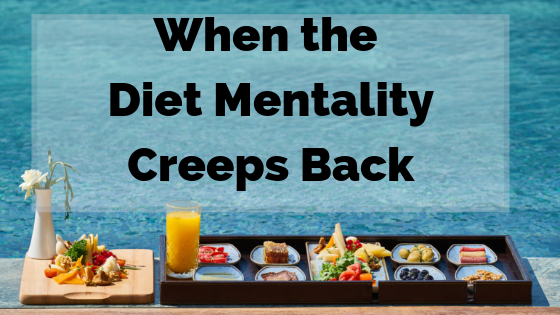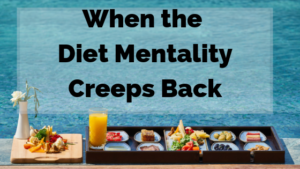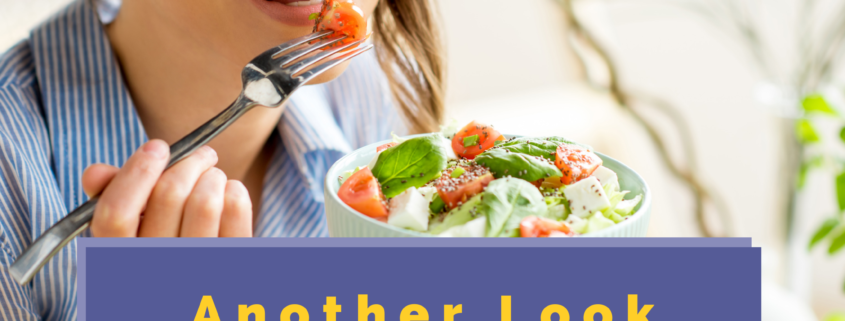My Decision to Live More Mindfully (and 8 Tips for Mindful Eating)
 I’ve been giving thought to what I’d like to see for myself in the New Year. As we kick off 2020, I’m feeling really good about the intention I set for myself for the coming year which is (drum roll please…) MINDFUL LIVING.
I’ve been giving thought to what I’d like to see for myself in the New Year. As we kick off 2020, I’m feeling really good about the intention I set for myself for the coming year which is (drum roll please…) MINDFUL LIVING.
There’s a lot of buzz around mindfulness and as I’ve been teaching more and more about it to my intuitive eating clients, I realize that sometimes I run through my days without being as mindful as I’d like. So, I’ve made a commitment to myself to utilize the strategies that I teach my clients as part of my self-care plan.
Let’s Explore Mindfulness
Mindfulness is a Buddhist concept defined as “an awareness that arises through paying attention, on purpose, in the present moment, non-judgmentally.”
Mindful living, therefore, is paying full attention and being fully present to each and everything you do, from taking your morning shower, to sending your kids off to school, to driving to work and cooking dinner. There is so much to learn when you pay full attention to the tasks you take on every day.
Mindful Eating
When applied to food or nutrition, mindful eating is “using mindfulness to reach a state of full attention to your experiences, cravings, and physical cues when eating.”
Mindful Eating Day is tomorrow, January 4th. It’s a great time to begin the practice of mindful eating to improve your eating experiences.
Learning to eat mindfully takes time, patience, and consistency. The more mindful you become, the more benefits you will experience. Some of the pros of mindful eating includes easier digestion, reduced stress or anxiety around food, and increased enjoyment of meals.
You can start to become a mindful eater by implementing a few of the following practices into your eating routine. Start small by eating one mindful meal a day. Once you settle into a rhythm, you can begin to eat all of your meals mindfully.
8 Tips for Practicing Mindful Eating
1. Eat slowly and intentionally
2. Avoid distractions while eating (i.e. cell phones, television, computer, etc.)
3. Take small bites and chew your food thoroughly
4. Pay attention to and listen for your body’s hunger cues
5. Eat to the point of comfortable fullness
6. Notice the tastes, textures, smells, and flavors of the food you eat
7. Pay attention to how food makes you feel before, during and after a meal
8. Appreciate the food that you are eating
Is Mindful Eating the Same as Intuitive Eating?
No, it’s not.
In my practice, I encourage my clients to practice mindful eating as part of their journey to becoming an intuitive eater.
It should be noted that while intuitive eating shares certain values with mindful eating, they are different concepts. Mindful eating is about being present at the table in a non-judgmental way. Intuitive eating is a self-care feeding model that helps reacquaint people with their inner body wisdom and discover what satisfaction and fullness feel like individually. The emphasis is on rejecting diet culture and honoring health and taste buds together through gentle nutrition.
It’s possible to engage in mindful eating and not be an intuitive eater, but intuitive eating isn’t really possible without some mindfulness.
Will You Join Me?
As I move into more mindful living this year, I’m excited to see what comes. Will you join me in this venture? Let me know!
Support is Available
If you need support to reclaim your birthright of being an intuitive and mindful eater, click here to schedule a complementary chat with me.


